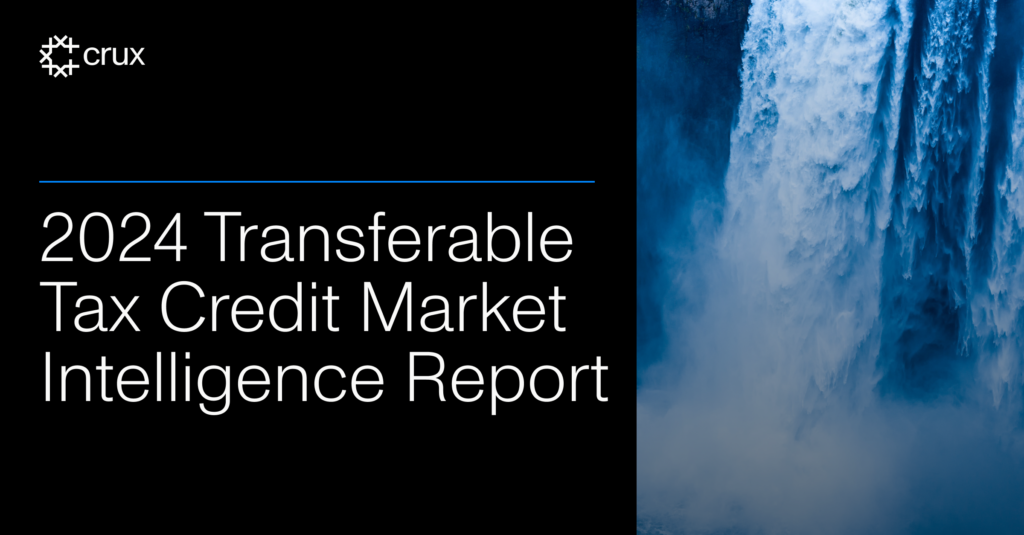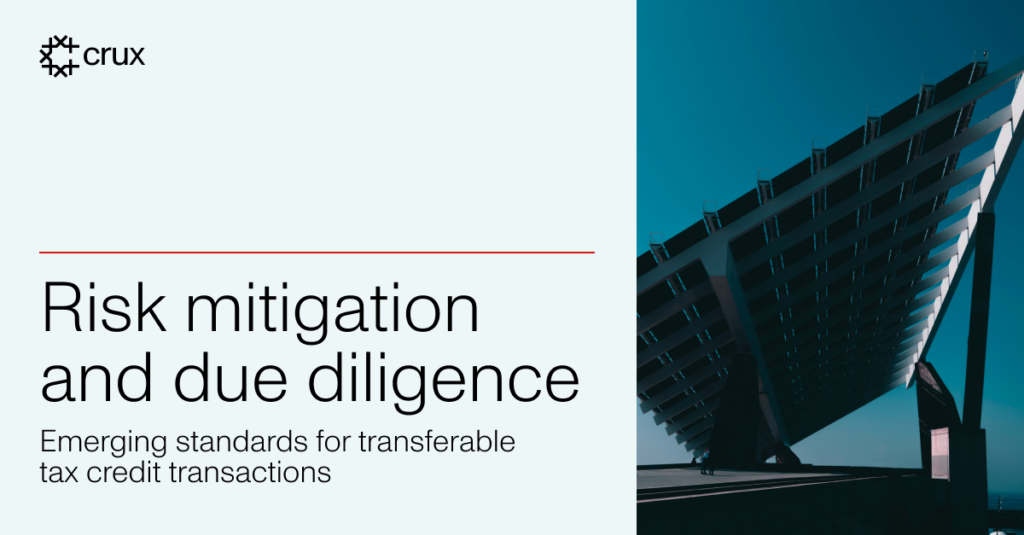American Clean Power
Transferable Tax Credits
In 2022, federal legislation expanded the tax credits available to clean energy and manufacturing projects and made them transferable. The new transferable tax equity market allows, for the first time, clean energy developers and manufacturers to sell their tax credits to third parties — creating a powerful market mechanism to channel private sector investments into energy infrastructure, innovative technologies, and advanced manufacturing.
What are transferable tax credits?
Transferable tax credits reduce the cost of capital and allow developers and manufacturers to recycle capital more quickly. Developers and manufacturers can also take advantage of shortened transaction timelines and the ability to sell credits to a broader pool of corporate tax payers compared to traditional tax equity structures.
The result? Since 2022, energy and manufacturing tax credits have been driving a resurgence of US manufacturing and catalyzing innovations and infrastructure all across the country. Crux’s research indicates that every dollar of federal tax credit drives five dollars of private sector investment. Research from ACP and ICF shows that energy tax credits will drive $1.9 trillion in growth and create 13.7 million jobs.
What does the transferable tax credit market look like?
The transferable tax credit market is growing and maturing rapidly. Crux estimates that $30 billion of tax credit transfers occurred in 2024. The market also showed a trend toward diversification over the year — while wind and solar dominated the first half of 2024, investments in manufacturing, critical minerals, nuclear, geothermal, and biofuels made up more than 70% of the transferable tax credit market in the second half of 2024.
For an in-depth look at the market, read Crux’s 2024 Transferable Tax Credit Market Intelligence Report.
Why has ACP Partnered with Crux?
ACP’s partnership with Crux makes tax credit transfers more accessible to the clean energy industry. Crux is the industry’s central platform, providing developers and manufacturers with access to the largest network of tax credit buyers, market-standardized documentation to streamline transactions, critical tools and data, and pricing transparency to build a robust and efficient market.
Through our partnership, ACP members have access to discounts on transferable tax credit transaction fees as well as exclusive data and insights on the evolving market throughout the year.
Frequently Asked Questions
What technologies are eligible for tax credits?
The legislation expanded the range of technologies eligible for tax credits. The list now includes mainstays wind, solar, and hybrid solar + storage, as well as newly eligible technologies such as:
- Advanced manufacturing
- Carbon capture and storage
- Nuclear
- Standalone battery storage
- Biofuels
- Hydrogen fuel cells
- Geothermal
- EV charging
- Critical minerals
What do tax credits cost?
Credits typically sell at a discount to face value, depending on a number of factors, including the size of the deal, credit type, technology type, credit quality of the seller, and more. Pricing averaged 92.5 cents for investment tax credit deals and 95.0 cents for production tax credit deals (both up from 2023).
What should you expect in your first tax credit transaction?
While tax credit transfers are structurally simpler than a tax equity deal, the process is still complex and requires good partners and a technology platform such as Crux.
Before you start, understand the market for transferable tax credits and whether it’s the most advantageous way for you to monetize your credits. If it is, the process will follow these steps:
- The project developer or manufacturer lists qualified credits for sale.
- A corporate taxpayer or their advisor identifies available tax credits that meet their specifications (i.e., size, fiscal year, risk profile, geography, technology type).
- The corporate taxpayer makes a non-binding bid on the tax credits, which the developer evaluates.
- The parties negotiate a term sheet, aligning on key terms.
- The buyer will perform due diligence, often alongside tax advisors and legal counsel.
- The parties negotiate definitive documents and fund the transaction.
What is a typical timeline for a transferable tax credit transaction?
Transaction timelines vary depending on a number of factors. The fastest deal close that Crux has observed took just 17 days.
Get in touch with Crux today to learn more.
A Word from Susan Nickey
Capitalizing on the tremendous growth opportunity for our clean energy sector and maximizing the tax incentives provided by the IRA requires expanding the tax equity investor base. Partnering with Crux provides the industry with critical tools, data, and pricing transparency to build a robust and efficient market for tax credit transfer transactions. I am thrilled to see ACP members gain access to key resources to help accelerate the deployment of clean energy solutions.
More About Crux
Crux is the capital markets technology company changing the way clean energy and manufacturing projects are financed in the US. Crux’s platform, market intelligence, and expert team help developers and manufacturers raise capital through all stages of project development and operation. The company’s first offering is the leading platform for tax credit transfers. Since its launch in 2023, Crux has raised more than $27 million in funding from venture capital and strategic investors. Crux’s world-class team brings together expertise from energy, tax, finance, government, and technology to power an abundant, resilient, and secure energy future. For more information, visit https://www.cruxclimate.com/.
ACP does not participate in the brokering, sale or marketing of tax credits. All information regarding the tax credits and Crux’s program is available through Crux and on Crux’s website, which is an external site not maintained by ACP; to learn more, please refer to Crux’s website and materials. ACP has not vetted or performed any review of the underlying tax credits being sold or being offered for sale on the Crux marketplace, or of any of the representations or information Crux provides on its website or marketplace. ACP may receive compensation from Crux if referred parties enter into a tax credit transaction on the Crux marketplace.








